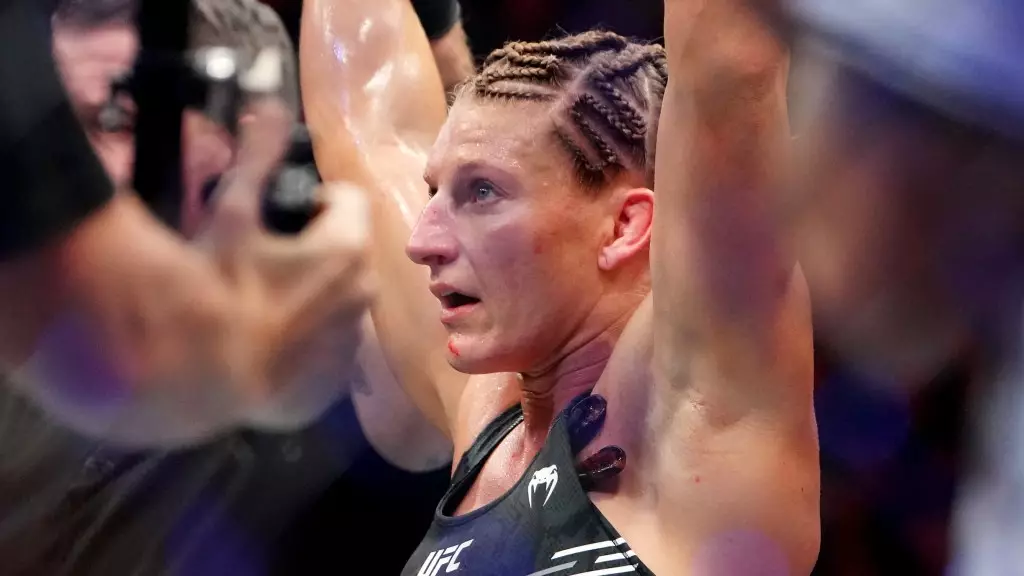In her post-fight reflection following UFC 307, Kayla Harrison was candid about her performance, stating, “It definitely wasn’t my best night in the cage.” This admission showcases a level of self-awareness that is admirable in a sport where ego often dominates. Despite facing adversity, including the first bloodshed of her career courtesy of adversary Ketlen Vieira, Harrison ultimately emerged victorious via unanimous decision. Her scores — 30-27, 30-27, and 29-28 — reflect overall control, yet they hide the internal battles Harrison faced leading up to the fight.
Harrison’s acknowledgment of her performance, however, reveals a broader narrative about resilience and growth. “I know I can be better and grow from it,” she asserted, indicating that she does not view this bout merely as a success or failure but as a stepping stone toward improvement. This illustrates a maturity in her approach to competition, where the focus lies equally on mental fortitude as on physical prowess.
Before her fight, Harrison confronted significant health challenges that notably impacted her performance. “I was peeing blood,” she disclosed, hinting at complications serious enough to necessitate a hospital visit just days prior. While she hesitated to label these issues as excuses, they undeniably shaped her preparation and mindset. Her manager, Ali Abdelaziz, informed UFC officials about her condition, a gesture that underscores the importance of fighter welfare in high-stakes competitions.
This incident raises questions around fighter health and the rigorous protocols that govern their participation in matches. Harrison was competing under extreme conditions, having to cut weight to 135 pounds — a considerable drop from her accustomed 155-pound fighting weight. Such drastic reductions in weight can have profound physiological impacts, exacerbating the strain on an athlete’s body.
As she navigates the transition to UFC, Harrison’s comments emphasize the struggle between ambition and physical limitations. “I’m not built to weigh 135 pounds,” she admitted, signaling the toll that cutting weight can exact on her performance and overall health. Harrison expressed a desire for a break, suggesting that her well-being depends on adequate recuperation from the demanding weight cuts she has undergone.
With a potential title shot against newly crowned champion Julianna Peña on the horizon, the timing of her recovery becomes crucial. Harrison’s need for a “little bit of time off” is not just a personal preference; it’s a strategic move to ensure her best self enters the octagon next time. This highlights a larger discussion in professional athletics regarding the pressures fighters face, both externally from the sport and internally from their own standards.
Kayla Harrison’s experience at UFC 307 encapsulates a significant moment in her fighting career, marked by a blend of triumph, struggle, and the pursuit of self-improvement. Her reflections serve as a reminder that even in the realms of elite sports, vulnerabilities exist and must be acknowledged. As fans and analysts alike wait for her next steps, the focus should remain not only on her future fights but also on the importance of health, recovery, and sustainability in an athlete’s journey. Harrison’s story continues to unfold, promising a deeper narrative defined by resilience in the face of adversity.

